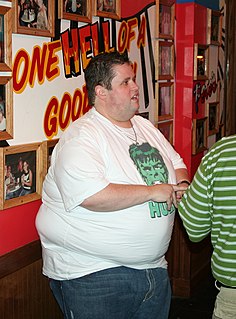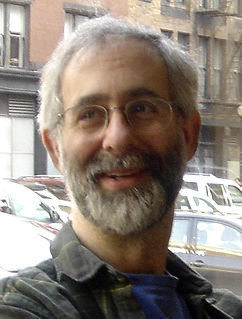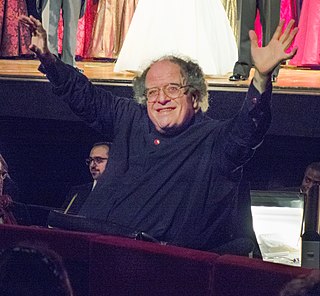A Quote by Ralphie May
My average fan works for about $20 per hour, if they are lucky enough to have a job. And then factoring in insurance, taxes and such, they're maybe bringing home $15 per hour. If my tickets are just under $30, it took them about two hours of their life to make the money to come see my show. Why shouldn't I give them two hours too?
Related Quotes
Economics works great for planning your life when you don't have a work passion, since we tend to assume that your job delivers only money and you trade off job hours with leisure hours. If you think your job will just be a job, pick one that pays well per hour and leaves you some time off, even if the activity of the job is boring.
That's what I've always loved about music, that I could go be another guy for two hours. But ultimately it all comes back to: do you have the songs, can you sing them, do you have a great band that can play them with you? You're charging money to have people come watch you play; I want them to feel taken someplace good or provoked into thinking my way for an hour and a half or two hours. I have been a provoker and I'll probably always be one in the public arena for the rest of my life.
I know that I am an excellent live performer. I know that I have spent my life paying attention to my art form, developing my art form, worrying about my show and what it is I'm bringing to people, making sure that I give them a fine trade. They get a two-hour show, sometimes a three-hour show, for a decent price.
If you're going to buy something which compounds for 30 years at 15% per annum and you pay one 35% tax at the very end, the way that works out is that after taxes, you keep 13.3% per annum. In contrast, if you bought the same investment, but had to pay taxes every year of 35% out of the 15% that you earned, then your return would be 15% minus 35% of 15%-or only 9.75% per year compounded. So the difference there is over 3.5%. And what 3.5% does to the numbers over long holding periods like 30 years is truly eye-opening.
One thing about other people, when they come to the gym, they might waste time wrapping hands, doing stretching and things. I don't like that. If I come to the gym, if one hour - all work. If two hours - all. I don't want to do this stuff so I can stay like two hours in the gym training only one hour. I want to do my own - quick, quick.
I'm not disciplined in terms of scheduling. I work best late at night, but I can't do that when I'm on a TV show - our hours are roughly 10-6:30, so I have to go to sleep at a reasonable hour. So I'll sometimes write fiction for an hour or two in the evenings, or several hours on the weekend afternoons - unless I'm actively writing a script for the show I'm working on, in which case there's no time to write fiction at all.
Before the show, there's about two or two and a half hours of meet and greets with radio stations, promoters, people who I need to see and thank and talk to to make sure they remember me. And then, I get - out of all that day of talking and smiling and shaking hands and getting photos, I get to sing for two hours.


































